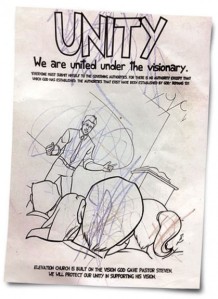This spring, a pair of mourning doves returned to our house to build their nest. Last summer they raised three broods of young birds, caring for them until they flew away on their own. This year, the mating pair carefully arranged sticks and soft materials, and eventually eggs appeared in the nest. Just last week, two babies emerged—ugly and scraggly—and the parents lovingly shielded them from the weather and brought them food. But their protection was ultimately not enough.
This morning, after a day of severe storms in our area, the nest was gone. Washed away. Blown away. Gone. I saw the mother bird flitter up and perch where the nest had formerly been. Inspecting. Searching. Poking her head about the spot. And I felt for her, the poor bird. Her babies were gone, and there was nothing she could do about it.
In some ways, this is a snapshot of what the tornadoes did yesterday. The storms have wiped away homes. Blown away livelihoods. And snuffed out life itself for some. And we are left like that helpless mother bird, inspecting, searching, trying to make sense of what happened. For some, our babies have been taken from us, and despite our best efforts to protect them, there is nothing we can do for them.
But the mourning doves have not given up. Later this morning, I saw the same mating pair rebuilding their nest in a nearby spot—hopefully a more secure spot. They were apparently starting over, doing what they do: making a nest where they will hatch more young and continue the cycle of life.
It may be inappropriate to ascribe human emotions to a pair of birds, but I believe they are driven by hope. They keep plugging away, because that’s what they do. And we who have faced loss are like those mourning doves. Constrained by hope, urged on by the firm conviction that all is not lost, we start building again. Of course, our rebuilding is not a denial of what has happened to us, but it is an affirmation that God is not finished, and that one day he will wipe away all our tears.
But until that day, we put our trust in God, we allow hope to fill our sails, and we keep building.

